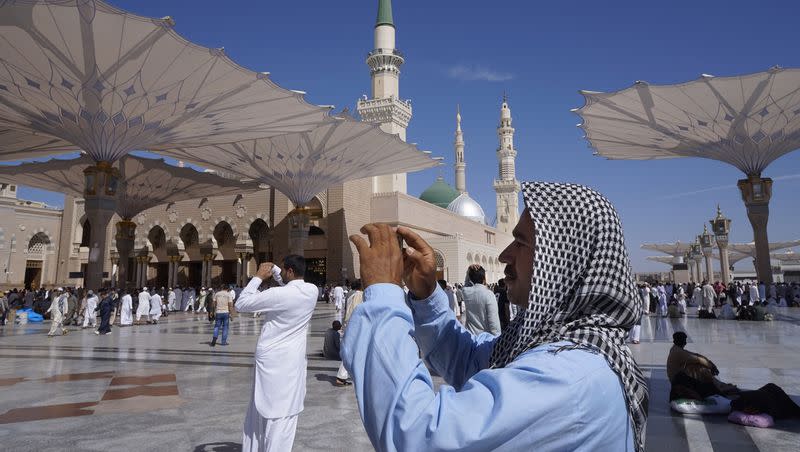Perspective: The role of the market in building community

How should leaders respond to injustice and conflict in our society? We can learn much from the model created by the Prophet Muhammad in Medina in the seventh century.
When he first moved to Medina in the year 622, Muhammad discovered a city where the wealthy dominated, and different clans were constantly at each other’s throats. A dispute over a well could easily ignite a blood feud. To solve the problem, he built several institutions to address these challenges. One of the most important was a market.
Previously, the different clans of Medina had their own separate spaces for trading goods and services. Muhammad encouraged them to move their various markets to a common space so that the diverse groups of Medina could engage each other positively around items of necessity and value.
This was not just a civic or economic principle, but a sacred one. The Qur’an says that God deliberately “made us into diverse nations and tribes that we may come to know one another.” The market, then, was a mechanism for pluralism. Unfortunately, the elite and the wealthy dominated the market. Somehow, they were always the ones that wound up with the best locations for their stalls. Too often, talented people who were poor and from ‘“lesser” clans felt shut out.
Muhammad spoke out against a society unfairly dominated by the wealthy. He illustrated the value of recognizing talent and providing opportunity by appointing a former slave from a different ethnicity — Bilal — to lead the call to prayer for the growing Muslim community.
He further realized that however fair you might make a market, there would always be people who could not thrive there — for example, widows with young children, or people who were infirm. He created a system of charity called “zakah” to care for such people.
Soon after the application of zakah, a wide array of people sought to benefit from it, including several working-age men.
Muhammad said to one, “You look fit and healthy. Do you have an axe?” The man did. Muhammad told him to use his strength and his axe to chop down deadwood to sell as firewood in the market.
Witnessing this exchange, a second man stood up and said that he was weak and lacked tools and therefore needed charity. Muhammad asked him if he had good relationships with family and friends who could help him. The man said yes, so Muhammad advised him to ask his network to help him start a business selling cheese in the market.
Related
Perspective: The dream of a religiously diverse democracy is ours to achieve
Opinion: America must strengthen its commitment to religious pluralism
Our own society has many of the same challenges the Prophet Muhammad encountered in early seventh century Medina. What can we learn from his example?
One, spaces where people can offer and exchange things of value can often dignify people and strengthen communities. We should treat people as contributors, with the assumption that they have something important to bring to the table.
Second, we should guard against “opportunity hoarding,” whether it’s with locations for stalls in a market or seats in elite educational institutions. Total equality of opportunity is probably not possible, but situations that are wildly out of balance need to be redressed.
Third, there will always be people who cannot fully care for themselves. A decent society creates systems that provide for such people.
Finally, sometimes humans can get stuck in cycles of self-victimization and need to be inspired to reclaim their agency. It is the job of responsible leaders to gently redirect and guide our energies towards productive uses.
We should remember that Muhammad was not principally the governor of a society, but God’s messenger and guide whose purpose was to offer spiritual elevation to both individuals and the broader community.
We spiritually elevate a community when we help it realize the sacred value of pluralism. We spiritually elevate individuals when we help them define themselves by their opportunities, not their obstacles, and by the assets God gave them rather than the aspersions cast against them.
Eboo Patel, the founder and president of Interfaith America, is a contributing writer for the Deseret News, the author of “We Need to Build: Field Notes for a Diverse Democracy” and the host of the podcast “Interfaith America with Eboo Patel.”

